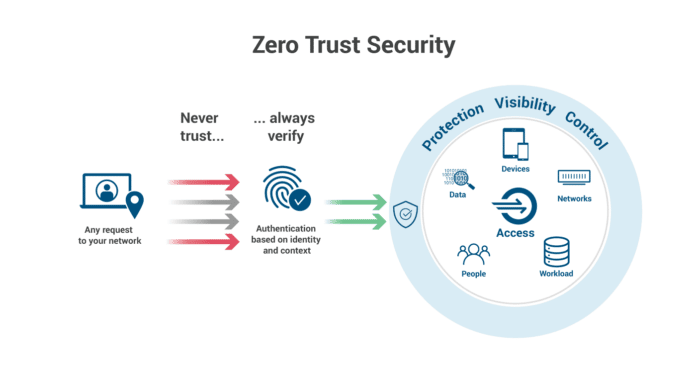The web has become a dangerous place for users who aren’t willing to take the necessary precautions. Websites, applications, and other online services are loaded with malicious code that can be executed by visiting those sites or simply clicking a link in an email or message. The result? A large number of people have been infected by malicious software and viruses. Fortunately, there are ways to stay safe on the internet. In this article, you’ll learn how to access and use the Zero Trust network securely. You’ll also discover what types of security measures are available to keep yourself safe from internet threats.
Accessing the Zero Trust Network securely
The zero trust network (ZTP) is a concept that Facebook developed. Therefore, it’s used by Facebook-owned organizations like Facebook, Instagram, and WhatsApp. The ZTP is an approach to network design that focuses on Centralized Trust and offers decentralized trust through a decentralized network. The ZTP infrastructure consists of a blockchain, a messaging system, and a user management system. The blockchain is the foundation for trust in the network. Users sign and verify their identity by digitally signing and verifying their public key. This public key is then used to verify the person’s identity to whom it’s being sent. The BSV blockchain system is where people can engage in secure communications. Users can securely and privately send messages to and receive messages from others. However, users also can chat with others on the network in a public chat facility.
Dealing with compromised devices
When someone compromises your computer or mobile device, they can access your private information, payment details, and other sensitive data. You must remove all traces of your computer, device, and any programs associated with them from the internet to be100% secure. However, doing this manually is time-consuming and error-prone. Furthermore, it would be not very easy for every organization to secure every device connected to the internet thoroughly. Therefore, a better solution may be to keep devices locked down by default.
Upgrading your security
The front-page story is often not the security holes but the attempts to plug them when it comes to internet security. This is why it’s critical to regularly update programs and drivers on all computers and devices connected to the internet. Additionally, it would help if you got a handle on who has access to what on your computer or devices. You can implement various security features to prevent unauthorized people from accessing sensitive information, data, and other content. For example, you can install an antimalware program to help protect your computer from viruses, worms, and other threats. Similarly, you can set up a password that’s easy for people to guess and requires a lot of effort for people to break into your computer. This will help prevent unauthorized people from accessing your computer and sensitive data.
Tips for staying safe on the web
While the internet is a safe place to hang out, use extreme caution when clicking on links in emails, news articles, or other web content. Always review the source to ensure that it’s trustworthy. Additionally, when using social media, verify the details of the person you’re interacting with. If they don’t have a verified account, don’t just “like” or “share” content. Instead, visit the account and check the details. If you’re unsure, feel free to ignore it. Also, be careful when using online banking. Many online banking and financial products come with a “default security policy” that automatically encrypts your data if you don’t upload a pass code. Ensure you check the privacy settings on all your online banking and financial products to ensure they’re not broadcasting your data.
Final Words
The internet is a powerful tool to help people get their jobs done more efficiently. However, it also has a dark side and can be used for malicious purposes. It’s important to use common sense when using the internet and avoid clicking on links in emails, news articles, and other web content that you find suspicious. The internet is a safe place to shop, socialize, and do business. However, it doesn’t belong to you and can be compromised by anyone. It’s essential to keep an eye on your computer and device activity to ensure that no one is eavesdropping on your conversations or monitoring your financial transactions.
